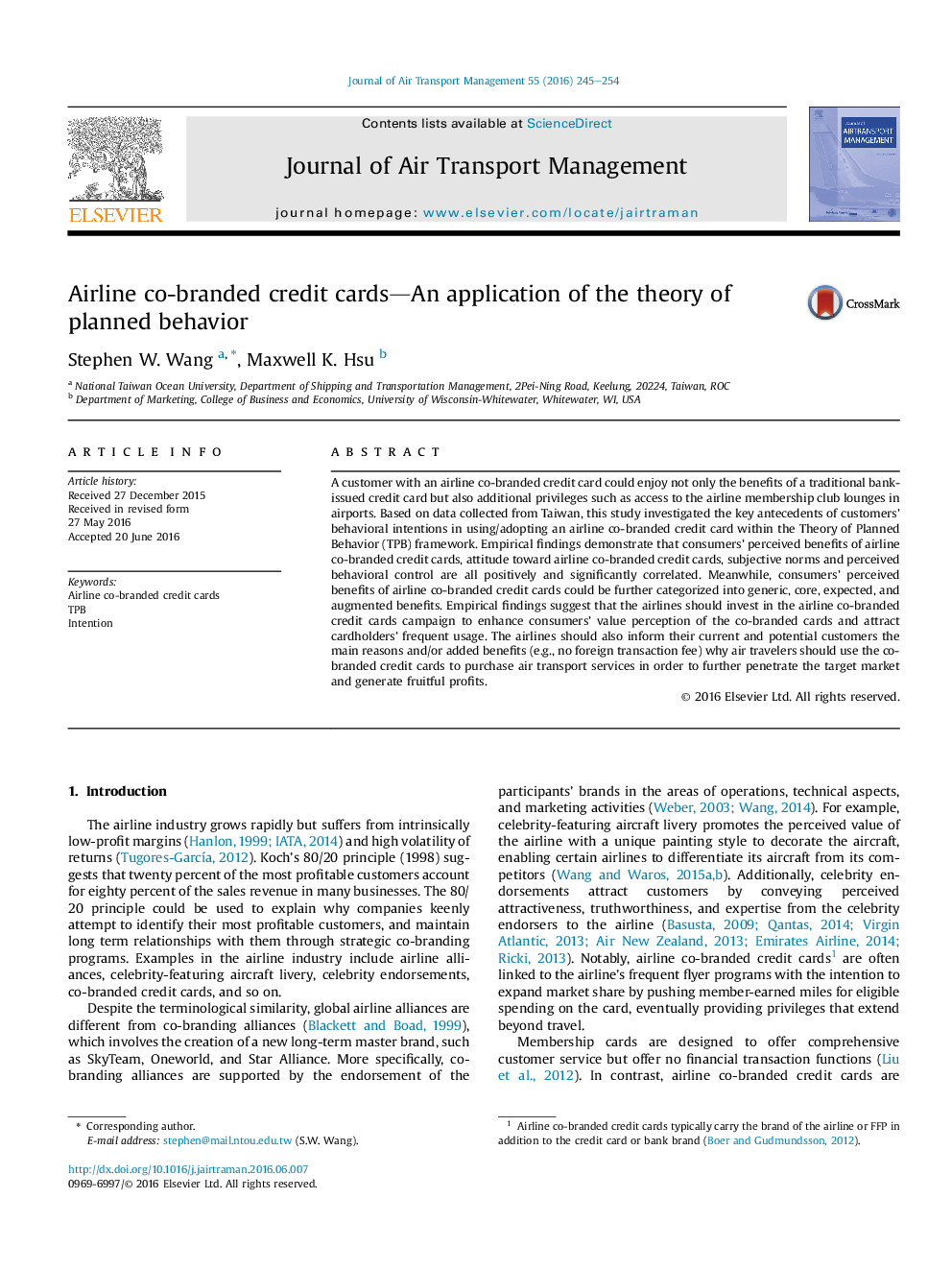| Article ID | Journal | Published Year | Pages | File Type |
|---|---|---|---|---|
| 7435553 | Journal of Air Transport Management | 2016 | 10 Pages |
Abstract
A customer with an airline co-branded credit card could enjoy not only the benefits of a traditional bank-issued credit card but also additional privileges such as access to the airline membership club lounges in airports. Based on data collected from Taiwan, this study investigated the key antecedents of customers' behavioral intentions in using/adopting an airline co-branded credit card within the Theory of Planned Behavior (TPB) framework. Empirical findings demonstrate that consumers' perceived benefits of airline co-branded credit cards, attitude toward airline co-branded credit cards, subjective norms and perceived behavioral control are all positively and significantly correlated. Meanwhile, consumers' perceived benefits of airline co-branded credit cards could be further categorized into generic, core, expected, and augmented benefits. Empirical findings suggest that the airlines should invest in the airline co-branded credit cards campaign to enhance consumers' value perception of the co-branded cards and attract cardholders' frequent usage. The airlines should also inform their current and potential customers the main reasons and/or added benefits (e.g., no foreign transaction fee) why air travelers should use the co-branded credit cards to purchase air transport services in order to further penetrate the target market and generate fruitful profits.
Related Topics
Social Sciences and Humanities
Business, Management and Accounting
Strategy and Management
Authors
Stephen W. Wang, Maxwell K. Hsu,
